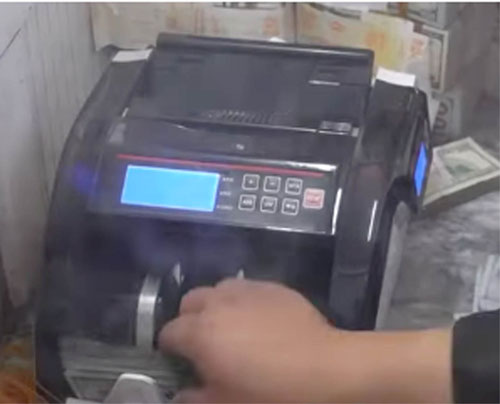The Afghanistan Central Bank (Da Afghanistan Bank) said that the UN’s $3.13 million cash assistance to Afghanistan over the past three months has increased the value of the Afghani against foreign currencies, especially the dollar.
“Afghanistan Bank welcomes UN humanitarian assistance to Afghanistan and calls for further assistance and cooperation,” said Saber Momand, spokesman of the Central Bank.
Meanwhile, some economists consider this aid to be important in reducing poverty in the country.
“Afghanistan needs more aid to be able to help our infrastructure, such as our production, industry and agriculture,” said Seyar Quraishi, an economist.
“The world financial assistance can help us solve the liquidity problem, improve monetary stability and control the exchange rate,” said Shakir Yaqoubi, another economist.
In the meantime, the Islamic Emirate called on the world to provide more aid to Afghanistan.
“The start of formal interaction, as well as the expansion of various interactions, especially trade and economic interactions, can save Afghanistan from the current economic crisis,” said Inamullah Samangani, deputy spokesman of the Islamic Emirate.
However, after the fall of the previous government, nearly ten billion dollars of Afghan assets were frozen in US banks and international aid to the country was cut off.
Meanwhile, the UN organizations are unable to use their funds–in US dollars–currently in accounts at Da Afghanistan Bank, because they cannot be converted into Afghan currency, Reuters reported.
According to the report, the UN has about $135 million in the bank in Afghanistan, but it cannot use it due to the banking issue.
A senior UN official in Afghanistan said the UN had transferred the US dollars into Kabul and deposited them into the Afghanistan International Bank.
According to the official, the transfer of funds happened based on a “clear promise” of the central bank that “cash will be automatically converted to afghanis.”
“This did not happen,” Abdallah al Dardari, head of the UN Development Programme (UNDP) in Afghanistan, told ACAMS Global Sanctions Space Summit, adding that UNDP itself has “$30 million stuck at AIB that I cannot convert to afghanis and without afghanis, as you can imagine, we cannot implement all our programs.”
The central bank, which provides the Afghan banknotes to other banks, has yet to comment on the issue.
Economists said that the company that is responsible for printing Afghan banknotes has not done so due to the recent political changes in Afghanistan.
“Based on the current needs, foreign cash is taken into Afghanistan. But when the private banks demand Afghan currency, the bank doesn’t have the cash to provide it to them,” Siar Qureshi, an economist.
“The Afghan banks and Afghan banking system so far have done nothing to convert this money (dollars) into Afghan currency to maintain the value of the Afs,” said Sayed Massoud, university instructor.
However, the Money Exchanger Union in Sarai Shahzada said that there is enough Afghan currency.
“There is a sufficient amount of Afs in the market,” said Abdul Rahman Zirak, a spokesman for the union.
The Islamic Emirate earlier banned the use of foreign currency for business in Afghanistan. An estimated 300 million Afs is circulating in the markets across Afghanistan.










